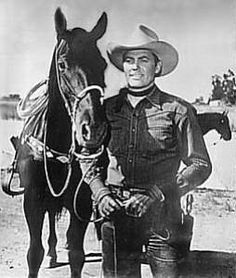Alan Blackjack
Alan Blackjack, free bonus casino australia, crown casino map perth, lights over morse lake poker run. Read our full review. PokerStars SCOOP 2020 GGPoker WSOP Online Super Circuit Oddschecker Poker League. Like splitting sevens in blackjack when the dealer has a six showing or doubling on a 10 against a dealer five. Alan Krigman was a weekly syndicated newspaper gaming columnist and Editor & Publisher of Winning Ways, a monthly newsletter for casino aficionados.
Lobby card for Not Quite Decent (1929) | |
| Born | September 22, 1909 Mishawaka, Indiana, U.S. |
|---|---|
| Died | October 27, 1973 (aged 64) |
| Resting place | Inglewood Park Cemetery |
| Occupation | Actor |
| Years active | 1929–1966 |
| Spouse(s) | (m. 1945; div. 1946)Gladys Leslie (divorced) |
Allan 'Rocky' Lane (September 22, 1909 – October 27, 1973) was an American studioleading man and the star of many cowboyB-movies in the 1940s and 1950s. He appeared in more than 125 films and TV shows in a career lasting from 1929 to 1966. He is best known for his portrayal of Red Ryder and for being the voice of the talking horse on the television series Mister Ed, beginning in 1961.
Biography[edit]
Lane was born as Harry Leonard Albershardt or Albershart (sources differ) in Mishawaka, Indiana[1] to Linnie Anne and William H. Albershardt.[2] He grew up in Grand Rapids, Michigan.[3] Lane had been a photographer, model and stage actor by age 20.
Lane played varsity sports (baseball, football, and basketball) at the University of Notre Dame but dropped out in order to pursue his interests in acting.[4]
Film career[edit]
He was spotted by Fox Film Corporation (later 20th Century Fox) talent scouts and was signed to a contract. His first film role for Fox was as a romantic lead opposite June Collyer in the 1929 release, Not Quite Decent (now a lost film). He made several other films at Fox but jumped ship to Warner Bros.[1] in the early 1930s.[citation needed]
While at Warner his career foundered, and after a number of bit parts he left films in the early 1930s. By 1936, Lane returned to films and to 20th Century Fox, taking supporting roles in the drama Laughing at Trouble and the Shirley Temple film Stowaway. After several more supporting roles at Fox, Lane longed for a starring role; therefore, he took the lead in a Republic Pictures' short feature, The Duke Comes Back (1937).

From 1929 through 1936, he appeared in twenty-four films. He was in 1938's The Law West of Tombstone. In 1940, he portrayed 'RCMP Sergeant Dave King', the role becoming one of his most notable successes.[citation needed] The first was King of the Royal Mounted, a 12-part 1940 serial[5] adaptation of Zane Grey's King of the Royal Mounted. He starred in several Royal Canadian Mounted Police films, including the serials The Yukon Patrol and King of the Mounties. He is best remembered for these today.[citation needed]
In 1946 and 1947, he portrayed Red Ryder in seven films, replacing Wild Bill Elliott in that role.[6] The following year, he became 'Rocky Lane' in Western films.
Between 1940 and 1966, Lane made eighty-two film and television series appearances, mostly in westerns. Between 1947 and 1953, he made over 30 B-movie westerns (as 'Rocky' Lane) with his faithful horse 'Black Jack'.
His last roles were in voice over acting, including providing the speech for Mister Ed (1961–1966). He was never credited on-screen for providing the voice for Mister Ed.[7]
In 2003, he won the TV Land Award posthumously for the category 'Favorite Pet-Human Relationship' as Mr. Ed.[8]
Death[edit]
Lane died in California of cancer in 1973, at age 64.
In popular culture[edit]

Between 1965 and 1968 a celebrity comic was created around Rocky Lane's cowboy persona, written and drawn by Brazilian comics artist Primaggio Mantovi. [9]
Lane was one of the movie cowboys named in the lyrics of the song “Whatever Happened To Randolph Scott” by The Statler Brothers, which became a hit single in 1974.
Selected filmography[edit]
- Not Quite Decent (1929) as Jerry Connor
- The Forward Pass (1929) as Ed Kirby
- Love in the Rough (1930) as Johnson
- Madame Satan (1930) as Zeppelin Majordomo (uncredited)
- Night Nurse (1931) as Intern (uncredited)
- The Star Witness (1931) as Young Deputy at the Leeds Home (uncredited)
- Honor of the Family (1931) as Joseph
- Expensive Women (1931) as Party Boy with Bobby (uncredited)
- Local Boy Makes Good (1931) as Runner with a Bad Knee (uncredited)
- The Famous Ferguson Case (1932) as Reporter (uncredited)
- The Tenderfoot (1932) as Actor (uncredited)
- Week-End Marriage (1932) as Office Clerk (uncredited)
- Winner Take All (1932) as Monty - Joan's Friend (uncredited)
- Miss Pinkerton (1932) as Herbert Wynn (scenes deleted)
- Crooner (1932) as Heckler on Dance Floor (uncredited)
- A Successful Calamity (1932) as Polo Player (uncredited)
- The Crash (1932) as Geoffrey's Associate (uncredited)
- One Way Passage (1932) as Friend of Joan's (uncredited)
- Laughing at Trouble (1936) as John Campbell
- Stowaway (1936) as Richard Hope
- Step Lively, Jeeves! (1937) as Party Guest (uncredited)
- Charlie Chan at the Olympics (1937) as Richard Masters
- The Jones Family in Big Business (1937) as Ted Hewett
- Fifty Roads to Town (1937) as Leroy Smedley
- Sing and Be Happy (1937) as Hamilton Howe
- The Duke Comes Back (1937) as Duke Foster
- Night Spot (1938) as Pete Cooper
- Maid's Night Out (1938) as Bill Norman
- This Marriage Business (1938) as Bill Bennett
- Having Wonderful Time (1938) as Maxwell Pingwell aka Mac
- Crime Ring (1938) as Joe Ryan
- Fugitives for a Night (1938) as John Nelson
- The Law West of Tombstone (1938) as Danny Sanders
- Pacific Liner (1939) as Bilson
- Twelve Crowded Hours (1939) as Dave Sanders
- They Made Her a Spy (1939) as James Huntley
- Panama Lady (1939) as Dennis McTeague
- The Spellbinder (1939) as Steve Kindal
- Conspiracy (1939) as Steve Kendall
- Grand Ole Opry (1940) as Fred Barnes
- King of the Royal Mounted (1940, Serial) as Dave King
- All-American Co-Ed (1941) as Second Senior
- King of the Mounties (1942) as Sergeant Dave King
- Air Force (1943) as Marine (uncredited)
- Daredevils of the West (1943) as Duke Cameron
- The Dancing Masters (1943) as George Worthing
- Call of the South Seas (1944) as Kendall Gaige
- The Tiger Woman (1944) as Allen Saunders
- Silver City Kid (1944) as Jack Adams
- Stagecoach to Monterey (1944) as Bruce Redmond - Posing as Chick Weaver
- Sheriff of Sundown (1944) as Tex Jordan
- The Topeka Terror (1945) as Chad Stevens
- Corpus Christi Bandits (1945) as Capt. James Christie / Corpus Christi Jim
- Bells of Rosarita (1945) as Himself
- Trail of Kit Carson (1945) as Bill Harmon
- Gay Blades (1946) as Andy Buell
- A Guy Could Change (1946) as Michael 'Mike' Hogan
- Night Train to Memphis (1946) as Dan Acuff
- Santa Fe Uprising (1946) as Red Ryder
- Out California Way (1946) as Himself
- Stagecoach to Denver (1946) as Red Ryder
- Vigilantes of Boomtown (1947) as Red Ryder
- Homesteaders of Paradise Valley (1947) as Red Ryder
- Oregon Trail Scouts (1947) as Red Ryder
- Rustlers of Devil's Canyon (1947) as Red Ryder
- Marshal of Cripple Creek (1947) as Red Ryder
- The Wild Frontier (1947) as Rocky Lane
- Bandits of Dark Canyon (1947) as Rocky Lane
- Oklahoma Badlands (1948) as Allan Rocky Lane
- The Bold Frontiersman (1948) as Rocky Lane
- Carson City Raiders (1948) as Rocky Lane
- Marshal of Amarillo (1948) as Marshal Rocky Lane
- Desperadoes of Dodge City (1948) as Rocky Lane
- The Denver Kid (1948) as Rocky Lane Posing as the Denver Kid
- Sundown in Santa Fe (1948) as Rocky Lane
- Renegades of Sonora (1948) as Rocky Lane
- Sheriff of Wichita (1949) as Sheriff Rocky Lane
- Death Valley Gunfighter (1949) as Rocky Lane
- Frontier Investigator (1949) as Rocky Lane
- The Wyoming Bandit (1949) as Marshal Rocky Lane
- Bandit King of Texas (1949) as Rocky Lane
- Navajo Trail Raiders (1949) as Rocky Lane
- Powder River Rustlers (1949) as Rocky Lane
- Gunmen of Abilene (1950) as Rocky Lane
- Code of the Silver Sage (1950) as Lt. Rocky Lane
- Salt Lake Raiders (1950) as Deputy Marshal Rocky Lane
- Covered Wagon Raid (1950) as Rocky Lane
- Vigilante Hideout (1950) as Rocky Lane
- Frisco Tornado (1950) as Marshal Rocky Lane
- Rustlers on Horseback (1950) as Marshal Rocky Lane
- Trail of Robin Hood (1950) as Rocky Lane
- Rough Riders of Durango (1951) as Rocky Lane
- Night Riders of Montana (1951) as Rocky Lane
- Wells Fargo Gunmaster (1951) as Rocky Lane
- Fort Dodge Stampede (1951) as Deputy Sheriff Rocky Lane
- Desert of Lost Men (1951) as Rocky Lane
- Captive of Billy the Kid (1952) as Marshal 'Rocky' Lane
- Leadville Gunslinger (1952) as U. S. Marshal Rocky Lane
- Black Hills Ambush (1952) as Rocky Lane
- Thundering Caravans (1952) as Marshal Rocky Lane
- Desperadoes' Outpost (1952) as Rocky Lane
- Marshal of Cedar Rock (1953) as Marshal Rocky Lane
- Savage Frontier (1953) as U.S. Marshal Rocky Lane
- Bandits of the West (1953) as Marshal Rocky Lane
- El Paso Stampede (1953) as Rocky Lane
- The Saga of Hemp Brown (1958) as Sheriff
- Hell Bent for Leather (1960) as Kelsey
- Posse from Hell (1961) as Burl Hogan
Television[edit]
- Series
- Mister Ed, 1961–1966 syndicated and later CBS TV series. Lane provided the voice for Mister Ed. This was an uncredited role.
- Red Ryder, 1956–1957 TV series. Lane portrayed Red Ryder
- Guest appearances
- Cheyenne, episode 'Massacre at Gunsight Pass', originally aired May 1, 1961
- Gunsmoke, episode 'Long Hours, Short Pay', originally aired April 29, 1961
- Bonanza, episode 'The Blood Line', originally aired December 31, 1960
- Gunsmoke, episode 'The Badge', originally aired November 12, 1960
- Lawman, episode 'The Payment', originally aired May 8, 1960
- Bronco, episode 'Death of an Outlaw', originally aired March 8, 1960
- Colt .45, episode 'Arizona Anderson', originally aired February 14, 1960
- Tales of Wells Fargo, episode 'The Reward', originally aired April 21, 1958
- Wagon Train, episode 'The Daniel Barrister Story', originally aired April 16, 1958
- Alfred Hitchcock Presents, episode 'Lamb to the Slaughter', originally aired April 13, 1958
- Gunsmoke, episode 'Texas Cowboys', originally aired April 5, 1958
- Mike Hammer, episode 'Husbands Are Bad Luck', originally aired 1957
References[edit]
- ^ abRowan, Terry (2015). Who's Who In Hollywood!. Lulu.com. p. 212. ISBN9781329074491. Retrieved 7 September 2016.
- ^1910 U.S. Census, St. Joseph County, Indiana
- ^Allan Lane profile
- ^'The Voice of Mister Ed'. Legacy.com. Archived from the original on 2017-12-22. Retrieved 22 December 2017.
- ^Fyne, Robert (1997). The Hollywood Propaganda of World War II. Scarecrow Press. p. 133. ISBN9780810833104. Retrieved 7 September 2016.
- ^Boggs, Johnny D. (2013). Billy the Kid on Film, 1911-2012. McFarland. p. 112. ISBN9780786465552. Retrieved 7 September 2016.
- ^'(question and answer)'. Quad-City Times. Iowa, Davenport. 9 May 2004. p. 90. Retrieved December 21, 2017 – via Newspapers.com.
- ^IMDb profile for Allan Lane
- ^https://www.lambiek.net/artists/m/mantovi_primaggio.htm
External links[edit]
| Wikimedia Commons has media related to Allan Lane. |
- Allan Lane at IMDb
- Allan Lane at AllMovie
Before explaining a basic blackjack strategy, we should first consider our objective. There are many books that define the objective of blackjack as getting a hand as close as possible to 21. Unfortunately this is not always true. The objective in blackjack is to beat the dealer, and understanding this is your first step on the road to become a winning blackjack player. To win in blackjack it is possible to beat the dealer by holding a hand that is very far from 21– a 12 or 13, for example. It is important to remember that there are two ways to win: The first way to win is by having a hand with a higher total than the dealer. The second way is to have the dealer break or bust their hand. Most players seldom pay attention to the second form of winning. Players often think that they must always get as close as possible to 21. These players hit more often that they should and end up busting their hand and losing more often than they should.
Casino rules give the dealer one major advantage and one major disadvantage. The dealers major advantage is that he always draws last. If the dealer breaks after you have broken –which in reality is a tie – the dealer still wins that hand. The major disadvantage that the dealer has is that he must draw if he has 16 or less. This means that with hands totaling 12 to 16, it is possible that the next card may bust their hand. As a player you can capitalize on this handicap by making the right decisions about whether to draw or stand.
It’s true that most players lose because they hit too often and end up breaking their hand. There are those that unrealistically hope that the dealer will break and actually do not hit enough. You can not rely on a hunch when it comes to deciding whether you should hit or stand, logic must be used. If the dealer is showing a 2, 3, 4, or 5, you know that they must hit, no matter what the value of her hole card is. Knowing this you should stand on a lower hand value, such as 13, and wait for the dealer to break. Conversely, if the dealer has showing a high card (a 9 or 10), you would want to hit trying to get as close to 21 as possible. The logic behind this is that there is a very good chance that the dealer’s hole card is also high, and with a hand totally more than 16 they must stand.
Most recreational gamblers are unaware of the tremendous amount of research that has been done to provide blackjack players with the best possible basic blackjack strategy for playing the hands, which will take the advantage the casino has over the player down to the absolute minimum. To understand the strategy, you must remember the three variables involved in making blackjack decisions – your two cards and the dealer’s up-card. These three variables are expressed in about 550 different possible combinations, many of these decisions are similar, and it only takes about 30 rules cover all of them.
There are some small differences among the basic blackjack strategies which are a result of the use of more decks in the different games and rules variations between casinos. Generally, the multi-deck strategy is more conservative than the strategy used for a single deck game. A good example of this is the player’s hand of 11 versus a dealer up-card of ace. In the single deck game, the player has a better chance of drawing the 10, because there is only 52 cards in the deck. The correct play in this situation is to double down. The more cards in the multi-deck shoe game reduces the chances of drawing the 10, so the correct play in this situation to hit instead of doubling down.
Basic Blackjack Strategy for Standard Multi-Deck Shoe Blackjack
Here are some typical casino rules for the standard multi-deck shoe games:
Double down on any two cards
Split pairs up to four times
Double down permitted after splitting
Dealer stands on soft 17 (A, 6)
Insurance permitted
Surrender not permitted
If the casino does not permit doubling after splitting, make the following modifications to basic blackjack strategy:
Alan Hangover Blackjack
2, 2: Split on dealer up-cards 3-7, not 2-7
3, 3: Split on dealer up-cards 4-7, not 2-7
4, 4: Hit on dealer up-cards 5-6, do not split
6, 6: Split on dealer up-cards 3-6, not 2-6
If the casino permits surrender, surrender on the following hands:
9, 7 and 10, 6 against a dealer ace
9, 6; 9, 7; 10, 5; 10; 6 against a dealer 10 or face card;
9, 7 and 10, 6 against a dealer 9
The standard multi-deck basic blackjack strategy can also be used in the two-deck game with the following exceptions:
9: Double down on dealer up-card of 2-6; not 3-6;
5, 6 or 7, 4: Double down against a dealer ace; hit if your 11 is 9, 2 or 8, 3
Basic Blackjack Strategy for Standard Single-Deck Blackjack
Typical casino rules for the standard single-deck game are as follows:

- Double down on any two cards
- Split pairs up to four times
- Double down not permitted after splitting
Dealer hits soft 17 (A, 6)
Insurance permitted
Surrender not permitted
Resources:
 Double Down Chart
Double Down Chart